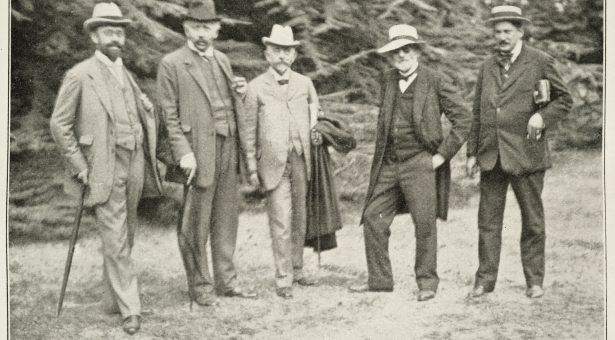Preserving vital research thanks to oral history project

The John Innes Centre has recently completed an oral history project with a grant from the East of England Regional Archives Council (EERAC).
Steeped in history, the John Innes Centre has made many scientific breakthroughs since it was founded in 1910 and has had a significant impact on UK and global agriculture, and on the health of the human race.
With expert help and support from the Norfolk Record Office, a collection of audio cassettes and tapes, containing interviews and vital research from key scientists and various former employees of the John Innes Centre, have been digitised and preserved.
The Norfolk Record Office, the local authority archive service for Norfolk, includes the Norfolk Sound Archive, which aims to collect, preserve and make accessible to the public sound recordings worthy of permanent preservation.
Sarah Wilmot, Outreach Curator and Science Historian at the John Innes Centre says: “This project has been necessary to preserve fundamental information for the John Innes Centre and the Plant Breeding Institute.”
She explains: “We had oral history recordings of scientists and garden staff whose recollections went back to the origins of both institutes, but they were recorded on a variety of formats, including reel-to-reel tapes, 1980s cassettes, and two ‘vinyl’ records.
“Cassettes and tapes are liable to deterioration in the long term, so we knew that we needed to act quickly or we were going to lose invaluable information to the John Innes Centre and the history of the Norwich Research Park. A key aim of the project was to widen public access to the recordings. We don’t have equipment to play back the old formats but now everyone will be able to listen to the digital copies at Norfolk Record Office.”
EERAC, which part-funded the project, aims to articulate, represent and support the needs and interests of archives and records, archivists, archive services and archive users in the East of England region by providing a vehicle for discussion, advice, outreach, advocacy and the exchange of information.
Dr Anthony Smith, Chairman of EERAC says: “The East of England Regional Archives Council is proud to have contributed to the success of the John Innes Centre’s exciting development of its historically significant sound recordings. One of our main aims is to encourage the preservation and wider use of historical archives throughout the East of England region.”
He adds: “In pursuit of this, our current small grants scheme seeks to benefit archives by making available key partnership funding designed to facilitate modestly scaled but ambitious archive projects that would otherwise struggle to get off the ground in the present tough financial climate.”
Senior Archivist at the Norfolk Record Office, Jonathan Draper comments: “The Norfolk Record Office was delighted to help improve the preservation of and access to this very important and unique collection of oral history recordings. Old formats of sound recordings are likely to deteriorate over time, even if they are stored in optimum conditions.”
He adds: “It is widely accepted that the best way of preserving audio is to digitise analogue recordings using internationally agreed standards, as well as storing the original recording for as long as possible. We therefore used high quality playback equipment and a good quality analogue to digital convertor to create uncompressed wave files with a sample frequency of at least 96 kHz and a bit-depth of 24. The recordings are fascinating and will be of interest to anyone studying the history of plant science and microbiology research, as well as the history of scientific research in general.”
